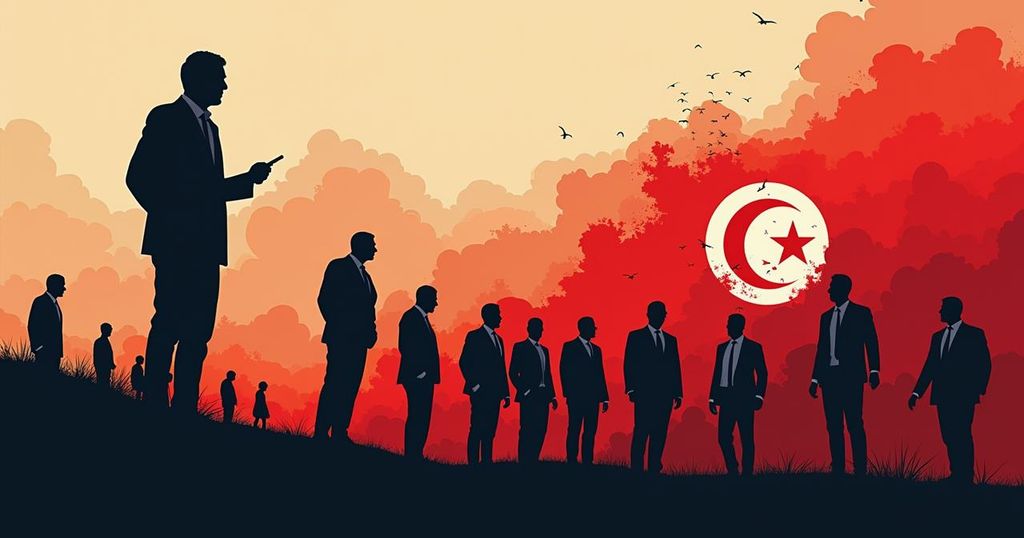Overview of Tunisia’s Presidential Election: Candidates and Challenges
Tunisia’s presidential elections on October 6, 2023, will feature just two candidates against incumbent president Kais Saied: Zouhair Magzhaoui, viewed as compliant with Saied’s regime, and jailed liberal leader Ayachi Zammel. The electoral process is marred by accusations of manipulation, with several potential candidates barred from running, raising significant concerns about the state of democracy in Tunisia.
The upcoming presidential election in Tunisia, scheduled for October 6, 2023, has raised significant concerns among opposition critics who allege that the process is skewed in favor of the current president, Kais Saied. In a troubling indication of the political landscape, only two candidates have been approved to run: left-wing nationalist Zouhair Magzhaoui, perceived as a supporter of Saied, and Ayachi Zammel, the leader of the liberal Azimoun party, who is currently serving jail time. Ayachi Zammel’s candidacy has been heavily overshadowed by his recent sentencing on several charges, including falsifying election-related documents, which many view as politically motivated. His imprisonment highlights a broader trend where several prominent politicians have been jailed or prohibited from participating in the electoral process by the Independent High Authority for Elections (ISIE), raising alarms over the integrity of Tunisia’s electoral system. The ISIE’s authority has been increasingly questioned as it disqualified 14 of the 17 candidates who applied to participate in the elections, claiming the approved list of candidates was final, despite legal challenges from various former ministers and opposition leaders. In a further erosion of judicial oversight, a new law passed by the Saied-controlled General Assembly stripped the Administrative Court of its electoral authority, which had previously provided a semblance of independent review. Despite the growing unrest and protests demanding fair elections and the restoration of civil liberties, the political environment remains stifled. Public discontent is compounded by a media landscape that has largely fallen into line with Saied’s narrative, largely due to restrictive laws that criminalize dissenting speech. Nonetheless, President Saied maintains support from segments of the populace disillusioned with traditional politics, viewing him as a corrective force against historical corruption. The election is anticipated to yield a substantial victory for Saied, given the highly controlled atmosphere and the limited choice for voters, with many expressing skepticism about the efficacy of their participation in a process perceived to be predetermined.
This article discusses the contentious political climate in Tunisia ahead of the presidential election scheduled for October 6, 2023. The election will see incumbent Kaiser Saied face only two candidates: Zouhair Magzhaoui, who is seen as an ally of Saied, and Ayachi Zammel, a liberal politician imprisoned on charges that many believe are politically motivated. This situation stems from ongoing crackdowns on dissent and opposition parties under Saied’s rule, particularly following his assumption of extraordinary powers in July 2021. The actions of the Independent High Authority for Elections, which has been criticized for its lack of genuine independence and transparency, further complicate the electoral process.
The forthcoming presidential election in Tunisia underscores a precarious moment for the nation’s democracy, with significant concerns about the fairness and integrity of the electoral process. The narrowing field of candidates and the political climate marked by arrests and suppression of dissent threaten the foundation of democratic practices. The overwhelming expectation is that President Kais Saied will secure another term, further consolidating his power against a backdrop of disillusionment among voters and a lack of effective opposition.
Original Source: www.aljazeera.com




Post Comment